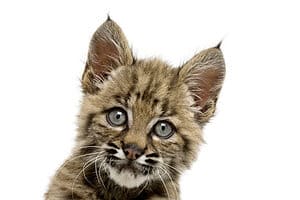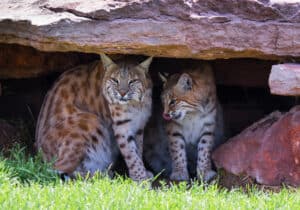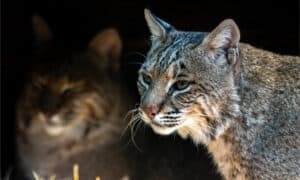Continue reading for our analysis...
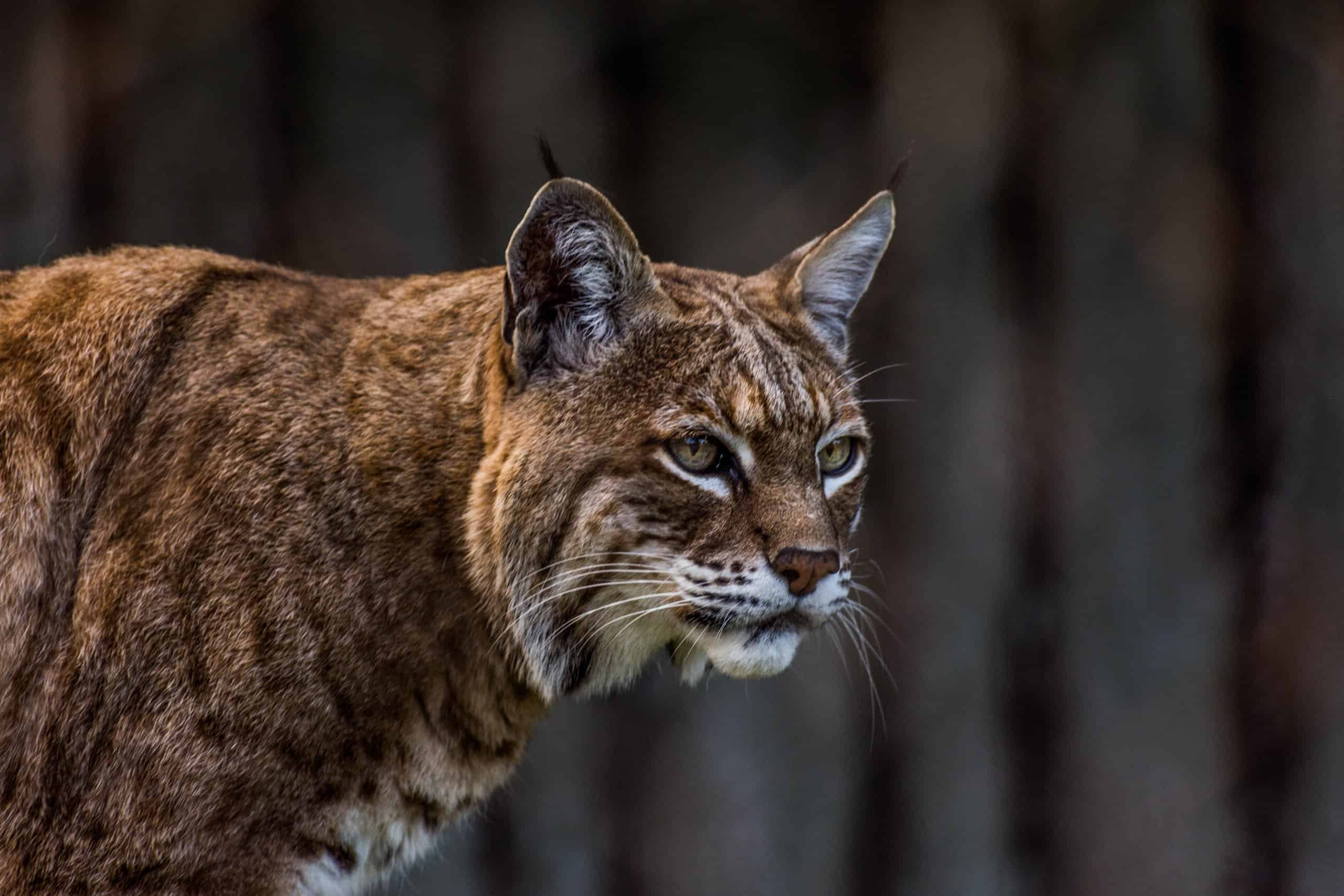
The action in this clip is over in just a few short seconds. It’s filmed at night, so you have to concentrate hard to catch what is going on. But you won’t miss the scream! A bobcat defends its dinner from the intruding coyote.
The coyote is looking for a free meal, hoping the waiting feline doesn’t notice it’s presence. When the bobcat strikes it launches itself at the coyote who lets out an unworldly scream. Then the coyote leaves pretty quickly!
Coyote’s Predators And Lifestyle
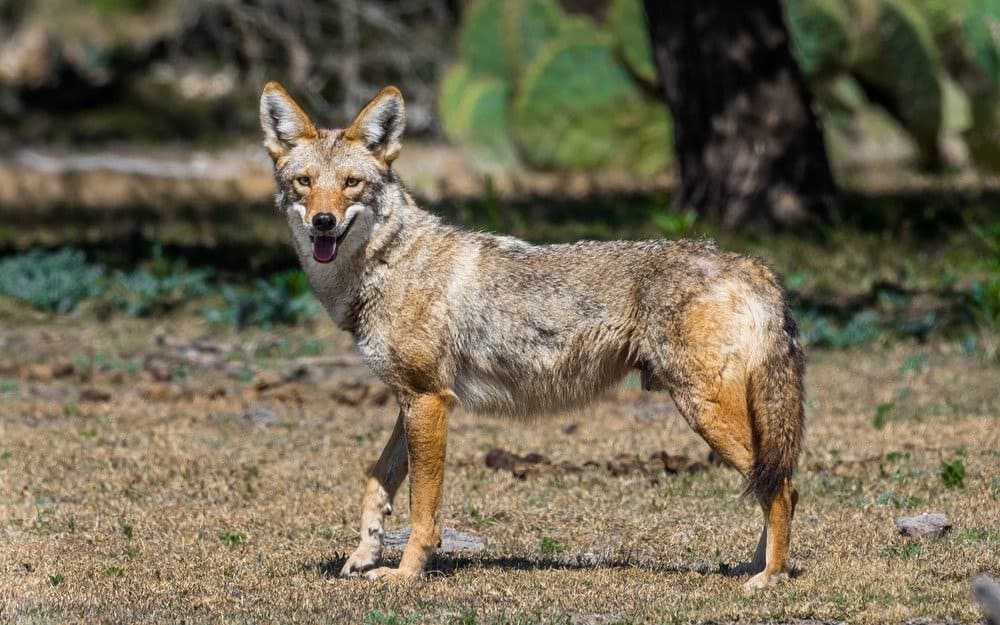
Coyotes and bobcats compete with each other for prey.
©Sam Carrera/Shutterstock.com
Coyotes are also known in some areas as prairie wolves and are one of the most common species of mammals in North America. They are nocturnal and are one of the animal species that have been able to adapt to live alongside humans very successfully.
There are actually 19 subspecies of coyotes including the plains coyote and the Mexican coyote. They look a bit like a slim wolf with very large ears and weigh up to around 50 pounds.
Coyotes have a huge range of vocalizations which include barks, howls, growls, and, as we hear here, screams! They use sounds to communicate greetings and warnings.
Thanks to their speed and ferocious nature, they do not have many predators but they are hunted by wolves, cougars, bears, and alligators. According to recent research, bobcats, and coyotes compete for prey but there is no evidence that bobcats feed on coyotes. This was probably more of a warning than an attempt to hunt the coyote as prey.
All About Bobcats
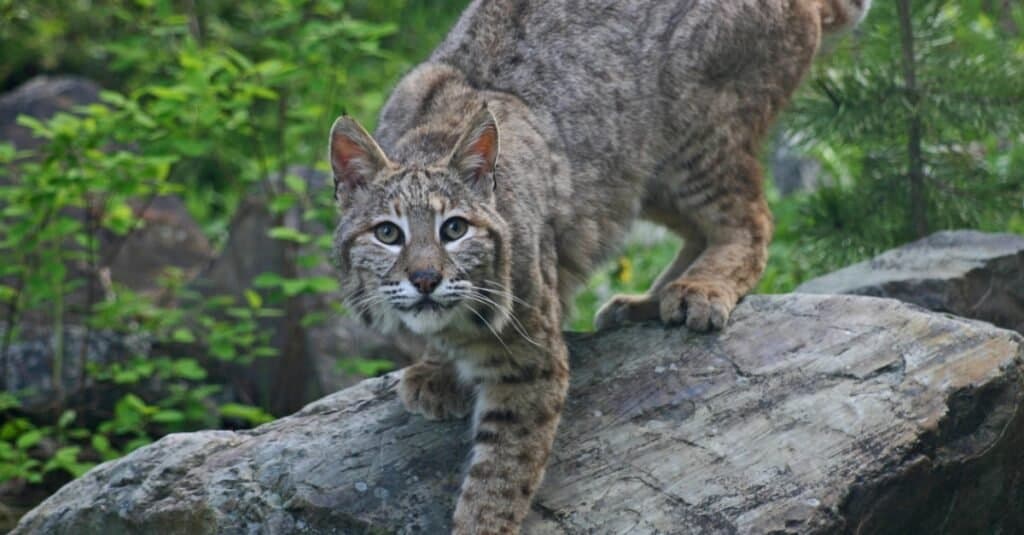
Bobcats are double the size of domestic cats.
©iStock.com/Anita Elder Design
Bobcats are native to central and North America and are medium-sized members of the Felidae family. Their usual prey includes rabbits, mice, and deer. These animals lead a solitary life and are about double the size of a domestic cat!
They are carnivores and are nocturnal or crepuscular – which means that they are most active at dusk and dawn. As a result, they are out and about at the same time of day as coyotes.
Bobcats are highly territorial and males in particular patrol their home ranges marking them with urine, feces, and claw marks on trees. Perhaps this attack was just a warning gesture when the coyote accidentally stumbled across the bobcat’s territory.
Is It Normal For Bobcats to Attack Coyotes?
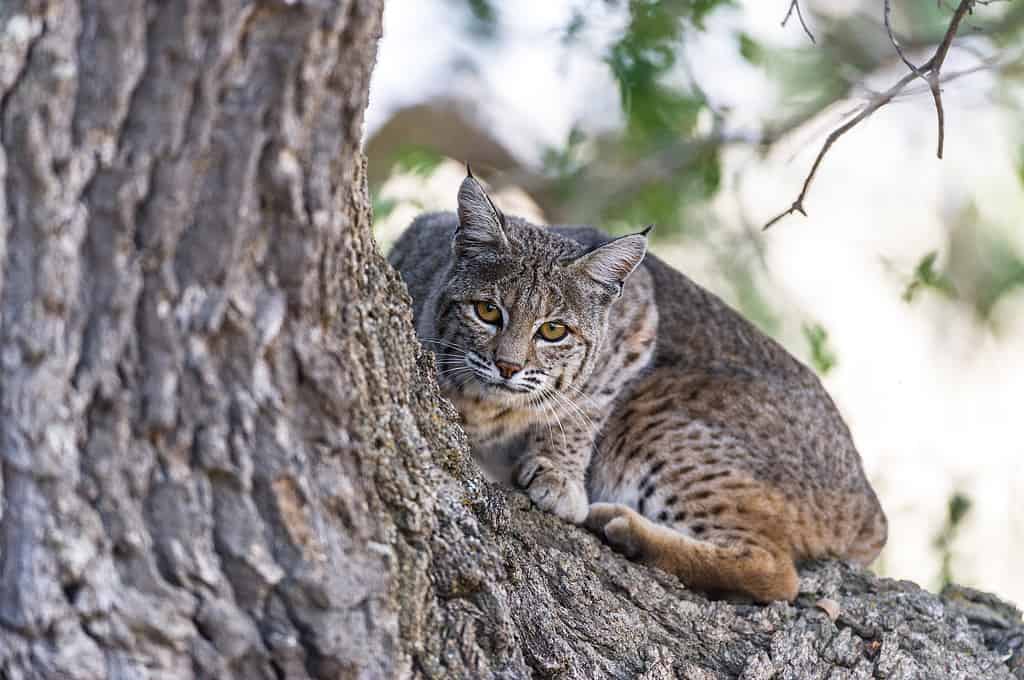
While bobcats usually don’t act aggressively towards coyotes, they may do so if one invades their territory or poses a threat.
©iStock.com/brentawp
No, it is not normal behavior for bobcats to lunge at or attack coyotes. One reason is the size of a coyote in respect to a bobcat. Bobcats are typically smaller than coyotes. The average size of a bobcat is 1 1/2 to 2 feet tall to the shoulder with a weight ranging from 9 to 33 pounds. Coyotes stand taller at 1.9 feet to 2.2 feet tall with an average weight of 20 to 50 pounds. Some can weigh more, even up to 100 pounds.
Your average bobcat would not purposely engage a coyote, even though both animals are competitors for similar prey. However, a bobcat can display aggressive behavior, especially if another animal invades its territory, comes near its den, or causes it to feel threatened. Also, if a bobcat gets cornered by a predator, it can react by defending itself.
It’s also important to note that bobcats do not prey on coyotes. There are no scientific facts to support that they eat coyotes or even scavenge them.
Thank you for reading! Have some feedback for us? Contact the AZ Animals editorial team.



